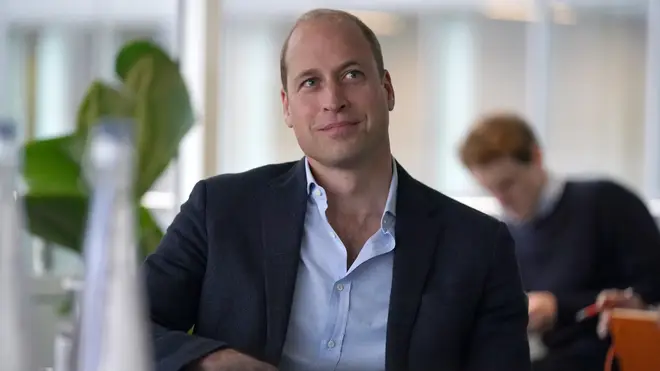
Nick Abbot 10pm - 1am
25 November 2021, 13:35

The duke campaigns against illegal wildlife trading and is the founder of the Royal Foundation’s United for Wildlife.
The Duke of Cambridge has praised a new type of scanning technology which has been created to stamp out illegal smuggling of wildlife products.
William visited the Microsoft UK offices in Reading on Thursday where he learned about how the new, state-of-the-art AI scanning technology is helping airport security detect illegal wildlife items concealed in baggage and cargo.
It follows a recent trial at London Heathrow, where Microsoft’s AI research project, Seeker, proved its ability with 70% accuracy.

The duke, who campaigns against illegal wildlife trading and is the founder of the Royal Foundation’s United for Wildlife, was told by Daniel Haines how he started developing the technology when he was working in a technical job at Heathrow. Since then it has been taken up by Microsoft, where he now works.
Heathrow chief executive John Holland-Kaye said: “At the moment we can pick up 70-80% of the dense materials, such as ivory. Some of the less dense materials, we are down at 30-40%. But that will improve.
“That will close down Heathrow as a channel for smuggling of endangered species. But it will go elsewhere.”
The aim, he said, would be to use their contacts to roll out the technology to other hub airports and then smaller regional airports.
Mr Haines said how it works is the software syncs with an airport X-ray scanner and uses artificial intelligence to identify objects.
Innovation in the fight against the illegal wildlife trade has come so far over the past decade thanks to @united4wildlife , and as seen today first hand, a new technology that could transform how illegal wildlife products are intercepted at airports. pic.twitter.com/OHNltHLqnX
— The Duke and Duchess of Cambridge (@KensingtonRoyal) November 18, 2021
Initially it was developed to recognise materials such as ivory, but they then realised that was not enough, so moved on to reticulated python skulls, birds’ eggs, river otter skulls and avian species.
He added that work was now underway to improve the speed in which technology can help law enforcement agencies to track down criminals.
Guy Clarke, a Border Force official working with the Cites – the international agreement on endangered species – team at Heathrow, showed the duke a range of items seized at airports, including a turtle shell backpack and a polar bear skin rug.
He told him how the internet had led to an increase in the illegal wildlife trade, particularly in derivative products.
He said: “This where the volume crime is – unusual items, such as a gents’ beard kit. There’s a beard softening lotion here, which is made from a Cites-listed aloe plant from southern Africa.”

William said: “How do you find that? That’s incredibly detailed.”
Mr Clarke’s colleague, Sam Trackman, said: “There’s a lot of searching.”
William added: “There is so much that goes through. To get in every crate, to get under it, it’s an incredibly difficult job. How many of you do it? Six? If you gave them another 20, 30, 40 people, they would still have an issue. That’s why technology is so important.”
United for Wildlife was founded by the Duke of Cambridge and The Royal Foundation in 2014 with the aim to protect endangered species and their habitats from the illegal wildlife trade.
It aims to prevent traffickers to transport, finance or profit from illegal wildlife products by working with transport and finance companies and forming partnerships with NGOs.